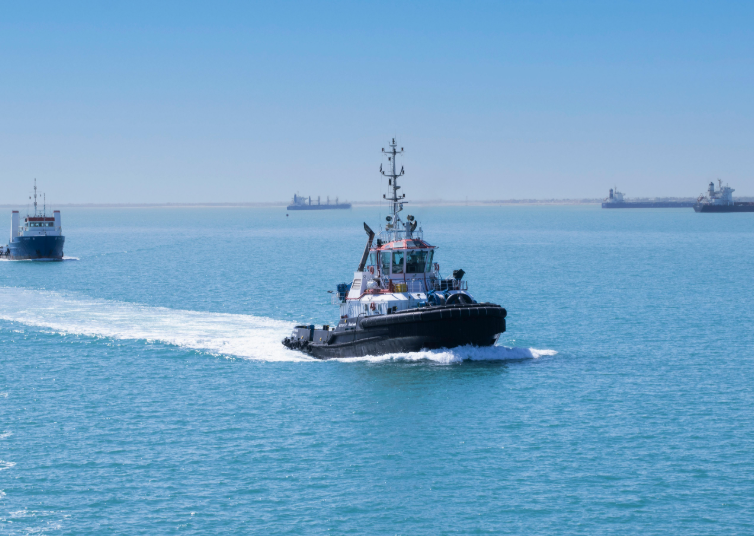Egypt’s Suez Canal Authority is exploring significant reductions in transit fees to encourage more shipping traffic. The move comes after a troubling decline in revenue due to attacks by Yemen’s Houthi militants, which have disrupted global shipping routes and hurt Egypt’s foreign currency earnings.
The Suez Canal: A Lifeline in Jeopardy
The Suez Canal, a key maritime artery linking Europe to Asia, has always been crucial to global trade. For Egypt, it is a vital source of revenue, bringing in billions of dollars each year. However, the recent months have been tough. A surge of attacks from Houthi militants in Yemen has led to a decline in the number of vessels passing through the canal, impacting Egypt’s economy.
Last week, the Suez Canal Authority (SCA) announced it is considering offering discounts on the canal’s transit fees, ranging from 12% to 15%. The hope is that these price cuts will help entice more ships to use the canal, countering the declining traffic triggered by the ongoing regional tensions. According to Osama Rabie, the head of the Suez Canal Authority, these changes could be implemented as soon as they receive official approval from Egyptian President Abdel Fattah al-Sisi.
The Impact of Houthi Attacks
Over the past several months, Yemen’s Houthi militants have escalated their attacks in the Red Sea, including on ships passing through the Suez Canal. The militants have claimed responsibility for targeting vessels to prevent cargo from reaching Israel, as part of their broader conflict with Israel. However, their actions have extended beyond their political aims, pushing ships away from the Suez Canal, a strategic passage for global trade.

The result has been a dramatic dip in revenue for the canal, which brought in $880.9 million in the fourth quarter of 2025, a sharp drop from $2.4 billion the previous year. This downturn has caused a ripple effect on Egypt’s broader economy, which is heavily reliant on foreign currency income from the Suez Canal. The Egyptian central bank’s most recent data confirmed the severe impact of the disruptions on the canal’s financial health.
A Shift in Strategy
Rabie’s comments follow a meeting with shipping agencies last week, where industry representatives called for temporary incentives to mitigate the risks of operating in a region increasingly viewed as a high-risk zone. The Houthi attacks have driven up insurance costs for ships navigating the Red Sea, leading many companies to reconsider their routes and cargo schedules.
Shipping industry leaders have argued that such financial support is essential for maintaining the flow of goods through one of the world’s busiest maritime routes. In response, Rabie and his team have suggested a series of short-term measures, including the fee reductions, to restore confidence in the canal as a secure and viable shipping route.
An Accord with the Houthis?
The crisis has gained international attention, with diplomatic efforts aimed at de-escalating the situation. Last week, a ceasefire agreement was brokered by Oman between the U.S. and the Houthis. Under the terms of the ceasefire, the U.S. agreed to halt its strikes against Houthi forces in Yemen in exchange for a commitment from the group to stop attacking U.S.-flagged vessels. However, the ceasefire does not extend to Israel, and analysts warn that the absence of a comprehensive peace deal means the threat to shipping routes in the region could persist.
Despite this, Rabie remains optimistic that the potential fee cuts will help reverse the canal’s revenue losses, stating that he expects the new measures to be approved by the Egyptian government shortly.
The Global Impact
The Suez Canal’s role in global trade cannot be overstated. In 2023, more than 10% of the world’s maritime trade passed through this waterway, connecting the Mediterranean Sea to the Red Sea and, by extension, to the Indian Ocean. The canal is vital for transporting goods ranging from oil to consumer goods and raw materials, and any disruptions in its operations can cause ripple effects throughout the global supply chain.
As the Suez Canal Authority grapples with the fallout from regional instability, the potential discounts could provide a much-needed lifeline. By lowering transit costs, Egypt hopes to entice shipping lines to return, securing the canal’s place as a dominant trade route.
The broader question, however, remains: how long can Egypt continue to depend on such short-term fixes in the face of ongoing geopolitical threats? Only time will tell whether the discounts will be enough to maintain the canal’s relevance and stability in the global economy.
